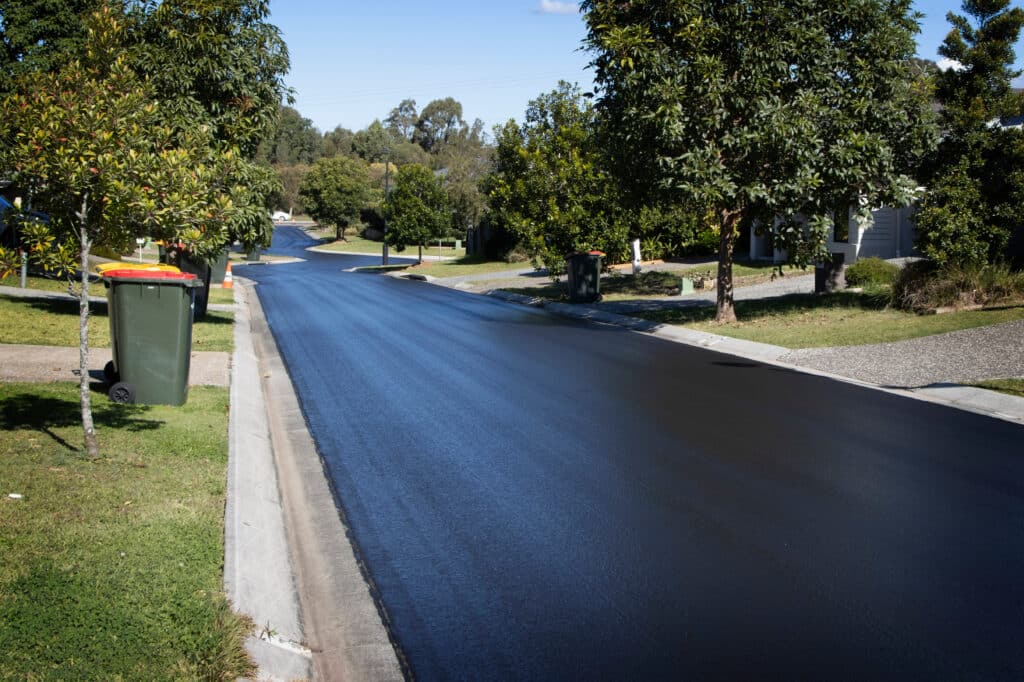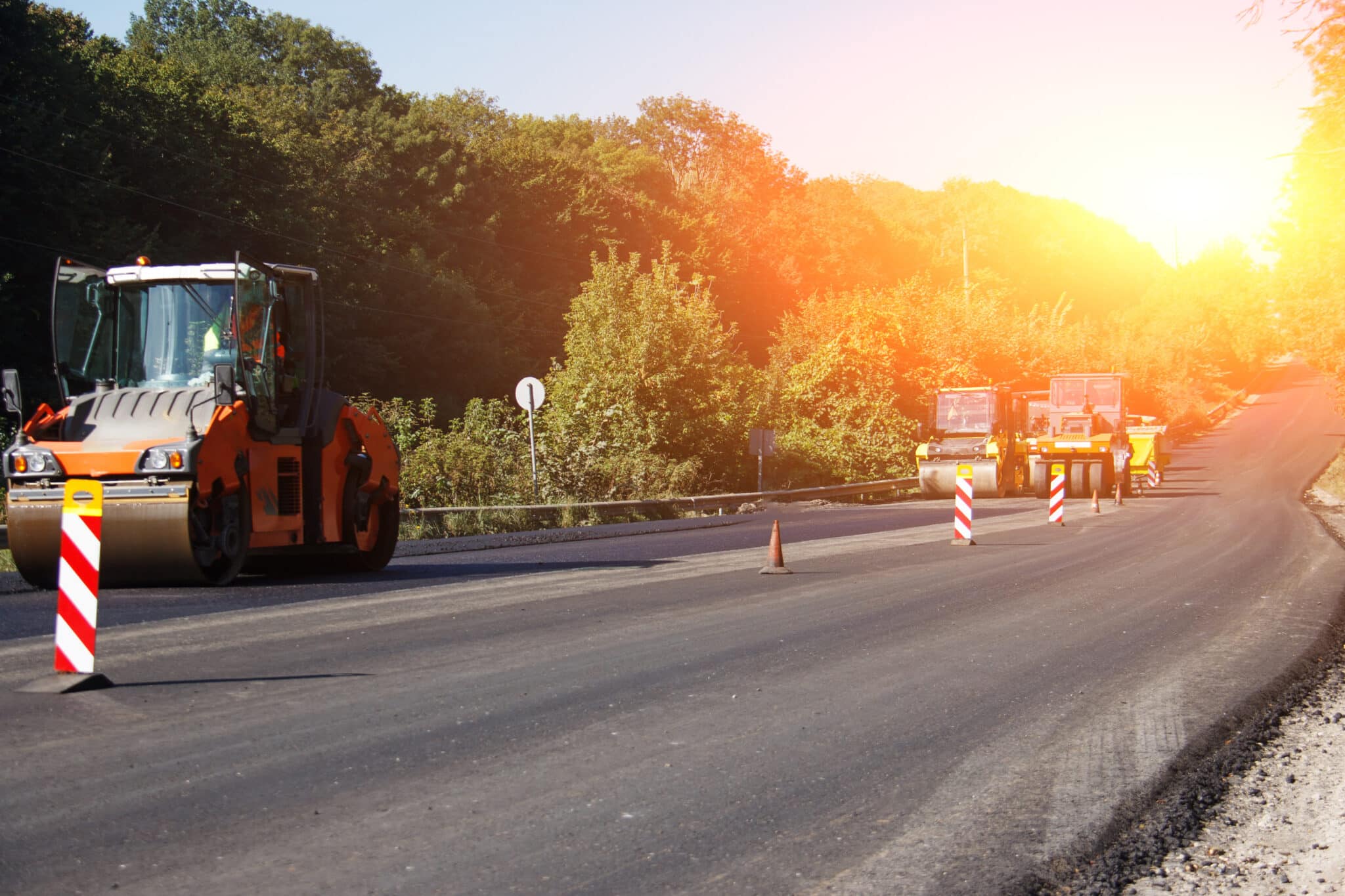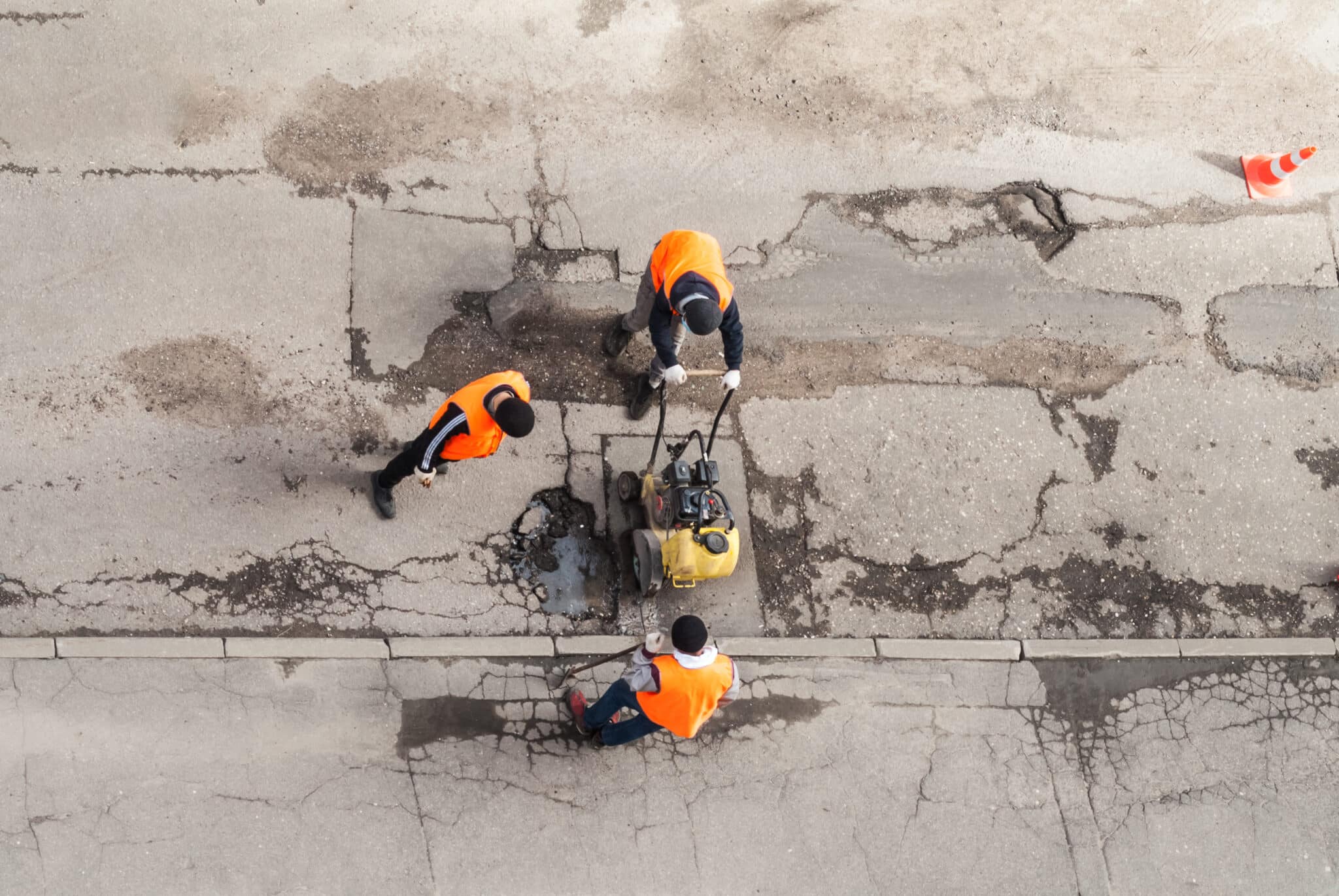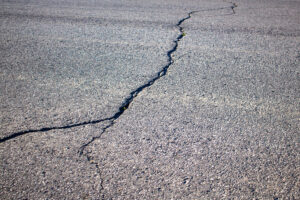What is asphalt resurfacing?
Asphalt resurfacing involves applying a new layer of asphalt, known as an overlay, to an existing roadway or parking lot. This process significantly extends the pavement’s life by repairing potholes, sealing cracks, and preventing water and debris from penetrating the surface and causing extensive damage. By addressing these issues before applying the new asphalt layer, resurfacing helps prevent further structural problems.
In addition to enhancing durability, resurfacing also improves the pavement’s appearance by providing a fresh, smooth surface. If you’re considering asphalt resurfacing for your property, here’s everything you need to know to get started.
Understanding Asphalt Resurfacing
Asphalt repair is a fantastic way to boost both the appearance and functionality of your driveway, parking lot, or roadway. It’s particularly beneficial for high-traffic areas, such as busy roads, parking lots, and driveways that endure a lot of wear and tear. By applying an asphalt overlay, you can significantly extend the lifespan of your pavement. This process ensures a smooth, even surface that improves safety and provides a more pleasant driving experience for vehicles. Not only does it enhance durability, but it also gives your pavement a fresh, clean look, making your property more attractive overall.
Asphalt Resurfacing Process
Asphalt resurfacing restores worn or damaged surfaces by coating them with a layer of new asphalt. This process extends pavement life by several years and is much less expensive than a complete replacement.
The first step in resurfacing is cleaning the existing surface. All dirt, debris, and vegetation must be removed so that the fresh asphalt will have a clean surface to bond to. Any potholes will have to be filled as well before the new surface can be laid. Once the surface is clean, a thin tack coat is applied to help the fresh asphalt seal coating stick to the old asphalt. After it’s applied, the new layer is laid down in one or more layers.
Resurfacing may require thicker asphalt layers depending on the existing surface and road traffic conditions. For metropolitan areas, highly trafficked streets, or extensive damage pavements, thicker asphalt coatings will be required.
Once the new asphalt has been laid, it’s compacted to a smooth, even surface. After the resurfacing process, the new layer will be ready in 72 hours, so keep traffic off the new asphalt, so it cures correctly.

When should you resurface asphalt?
There are some signs to watch when pavement needs its asphalt sealcoating. First is the overall surface appearance. If it’s starting to look dull, faded, or has cracks and potholes forming, it’s time to renovate. If there are dips and lots of cracks in the existing layer, it could indicate issues with the road base underneath the asphalt. If so, the overlay will eventually crack and possibly sink in the same areas. It is time for a repair if you notice this.
Another key indicator is the drainage condition of your property. If the water isn’t draining correctly, then it’s likely that the surface is no longer as smooth as it once was. This condition can cause pudding and flooding issues if it’s not addressed.
We highly recommend an asphalt overlay after a few years for routine pavement maintenance. It provides a new asphalt layer onto the existing surface. If potholes, dips, and cracks are on the existing layer, it could indicate issues with the road base underneath it. They will need to be filled in first before the asphalt overlay is applied, or the new layer can crack or possibly sink in the same areas.
Benefits of Resurfacing Asphalt
The asphalt resurfacing process is essential to maintaining safe and functional driveways, parking lots, and roadways. By following a thorough asphalt resurfacing process, you can enjoy numerous benefits, including:
- Extends pavement life up to 10 years
- Improves and creates a new appearance
- Prevents further structural damage
- Increases road safety
If you’re considering repairing your pavement, consult a professional to assess the condition and recommend the appropriate asphalt resurfacing process.

Ready to Resurface? Contact Superior Asphalt Today
When it comes to your home or property, you want to invest in the best. If your driveway or parking lot needs asphalt resurfacing, contact us for all your paving needs. Superior Asphalt has been in the asphalt maintenance industry since 1987. We take pride in creating long-lasting relationships with property managers, homeowners, contractors, and municipalities by providing high-quality work for all project sizes.
Our experienced professionals will ensure your property looks perfect before considering the job done.




